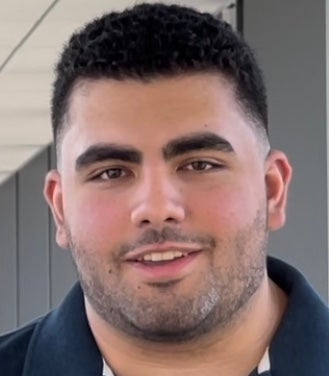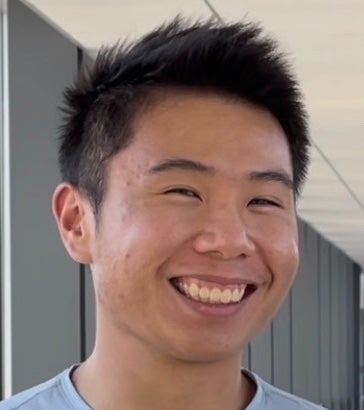WATOLINK, a student design team at Waterloo Engineering has won an international competition for developing a device that enables people with speech disabilities to communicate much faster than with existing technology.
Co-founded in 2021 by mechatronics engineering students Christopher Samra and Avery Chiu, WATOLINK focuses on developing the potential of non-invasive neurotechnology.
The team’s winning submission at the recent NeuroTechX Student Clubs competition consists of a custom speller software paired with a wearable brain computer interface (BCI) that uses electroencephalography (EEG) to identify electrical activity from the user’s brain.
This activity is then processed and sent to a machine learning algorithm that determines which characters, words, and phrases the user wants to speak in real-time. The speller can speak for the user through a synthetic voice as well as share the user’s messages on their social media platforms.
“Wearable BCI devices that address speech disabilities are typically limited in how much information they can transfer,” Samra said. “The best-case transfer rate sits at approximately 10 words per minute, which significantly impedes the flow of conversation.”

Christopher Samra, co-founder of WATOLINK.
“The interface we developed,” added Chiu, “leverages a large language model called GPT3 used for intelligent text generation to provide intelligent phrase suggestions based on conversational context. This means people wearing our device can communicate over two times faster than with a traditional BCI and enjoy greater social participation as a result.”

Avery Chiu, co-founder of WATOLINK.
The team plans to work towards making wearable neural interfaces that are commercially viable. Its efforts will be assisted by their first-place prize, which includes US $2,000 and business consultation with the Branch Out Neurological Foundation.
NeuroTechX is a global community of experts, hackers and enthusiasts working together to shape the future of neurotechnology.